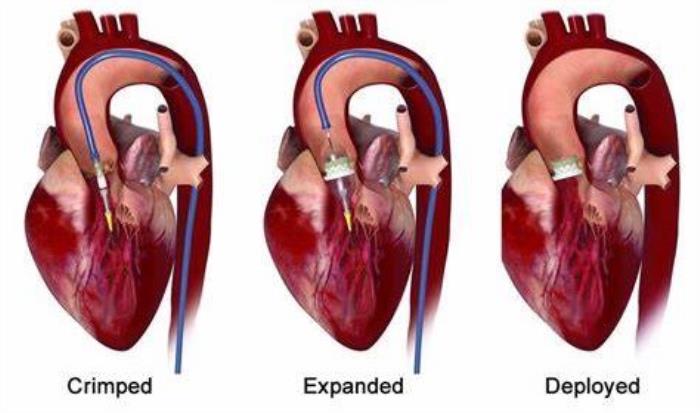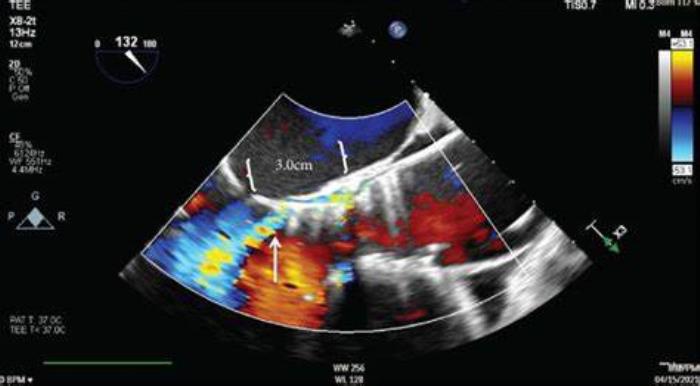Recognizing valve malfunction after Transcatheter Aortic Valve Replacement (TAVR) is crucial for ensuring the long-term success of the procedure. While TAVR offers significant benefits in treating aortic stenosis and other heart valve conditions, it is essential to monitor for any potential complications or signs of valve dysfunction in the months following surgery. Early detection of valve issues can help prevent further damage, improve heart function, and enhance recovery outcomes.
Understanding Valve Dysfunction After TAVR Surgery
Valve dysfunction after TAVR can occur if the newly implanted valve becomes damaged, displaced, or develops complications such as paravalvular leaks (leaks around the edge of the valve). Though rare, these issues may compromise the valve’s ability to regulate blood flow, which can negatively impact heart function. Identifying signs of valve malfunction early can prevent serious complications like heart failure or the need for additional interventions, making prompt diagnosis and treatment essential.
Common Signs of Valve Malfunction Post-TAVR
Several symptoms may indicate a malfunctioning valve after TAVR. These include increased shortness of breath, chest pain, irregular heartbeats, dizziness, or swelling in the legs or abdomen. If the valve does not open and close properly, it can lead to improper blood flow, which affects oxygenation and organ function. Recognizing these signs early can help healthcare providers take immediate action, whether through medical management or additional procedures.

How to Spot Changes in Heart Function After TAVR
Changes in heart function after TAVR may include a noticeable increase in fatigue, difficulty with physical activity, or a decline in exercise tolerance. These changes often result from improper valve function or issues like valve stenosis or regurgitation, where the valve does not fully open or close. Monitoring symptoms such as palpitations, dizziness, and shortness of breath can help patients and their doctors identify any decline in heart performance.
Chest Pain and Discomfort: A Sign of Valve Issues After TAVR?
Chest pain or discomfort after TAVR should not be ignored, as it could be a sign of valve malfunction, blood clots, or heart-related complications. While mild discomfort is common after surgery, persistent or severe chest pain may indicate that the newly implanted valve is not functioning as expected. Other associated symptoms, like sweating, nausea, or dizziness, may suggest a more urgent issue requiring immediate medical attention.
Shortness of Breath: Should It Raise Concerns Post-TAVR?
Shortness of breath after TAVR, particularly if it worsens over time or is accompanied by other symptoms like swelling or fatigue, may indicate that the valve is not working as it should. This symptom can arise from a condition known as a paravalvular leak, where blood leaks around the edge of the valve. It can also be a sign of heart failure, a complication in which the heart struggles to pump blood efficiently due to a faulty valve. Prompt evaluation by a healthcare professional is crucial if shortness of breath occurs after TAVR.
Unexplained Fatigue: When It Could Indicate Valve Malfunction
Fatigue is a common symptom following surgery, but if it persists or worsens significantly after TAVR, it may suggest that the valve is malfunctioning or that there are other underlying issues with heart function. When the heart is unable to pump blood efficiently due to an improper valve, the body’s organs and tissues do not receive enough oxygen, leading to increased tiredness and reduced energy levels. If unexplained fatigue develops after TAVR, it is essential to consult a healthcare provider for further evaluation and treatment.
Swelling in the Legs or Abdomen: A Sign to Monitor After TAVR
Swelling in the legs or abdomen after TAVR surgery could be a sign of heart failure or other complications related to the new valve. This is especially important to monitor as it may indicate that the heart is struggling to pump blood effectively. If swelling persists or worsens, it's essential to report it to your healthcare provider for further evaluation and management.
Irregular Heartbeats: Why You Shouldn't Ignore Them Post-TAVR
Irregular heartbeats (arrhythmias) are common after TAVR surgery due to the heart adjusting to the new valve. While many arrhythmias are temporary, it’s important not to ignore them, especially if they cause symptoms like dizziness, chest pain, or shortness of breath. Persistent arrhythmias can indicate a need for further treatment, such as medication or a pacemaker.
The Role of Echocardiograms in Detecting Valve Malfunction After TAVR
Echocardiograms are critical diagnostic tools used to assess the function of the new valve after TAVR. This non-invasive imaging technique helps detect complications such as valve leakage, improper valve positioning, or any changes in heart function. Regular echocardiograms are typically scheduled after surgery to ensure that the valve is functioning properly.

How to Monitor Your Symptoms and Report Them to Your Doctor
Post-TAVR patients should be vigilant about monitoring symptoms such as chest pain, shortness of breath, dizziness, or swelling. Keeping a symptom diary can help track any changes in your condition, making it easier for your healthcare provider to identify potential problems. Always report new or worsening symptoms promptly to ensure timely intervention.
Importance of Regular Follow-Up Appointments Post-TAVR
Regular follow-up appointments are essential to monitor the health of your new valve and heart function. These check-ups allow your doctor to conduct tests such as echocardiograms, blood pressure measurements, and blood work to ensure everything is functioning as expected. These visits also provide an opportunity to discuss any concerns or changes in your health.
How Blood Pressure and Heart Rate Can Reflect Valve Function After TAVR
Blood pressure and heart rate are key indicators of heart function and valve performance. A drop in blood pressure, for example, can suggest that the heart is not pumping efficiently, while a rapid or irregular heart rate could point to complications with the valve or rhythm disturbances. Regular monitoring of these vital signs helps track the health of your heart after TAVR.
Recognizing the Signs of Blood Clots and Embolisms After TAVR
Blood clots or embolisms are serious complications that can occur after TAVR, as the new valve may cause turbulence in blood flow, leading to clot formation. Symptoms of blood clots or embolisms may include sudden shortness of breath, chest pain, difficulty speaking, or leg swelling. If you experience any of these signs, seek immediate medical attention.
When to Seek Immediate Medical Help for Suspected Valve Malfunction
Seek immediate medical help if you experience signs of valve malfunction, such as severe chest pain, shortness of breath, fainting, or swelling in the legs or abdomen. These could indicate issues like valve failure, leakage, or obstruction, which require prompt medical intervention to prevent more serious complications.
What to Expect During an Evaluation for Valve Malfunction After TAVR
During an evaluation for valve malfunction, your doctor will typically perform an echocardiogram to assess the valve's function. Additional tests, such as a CT scan or MRI, may be ordered to check for structural problems or complications. Your healthcare provider will also review your symptoms, vital signs, and medical history to make a diagnosis and determine the appropriate treatment.
The Role of Medications in Managing Valve Function and Preventing Complications
Medications play a vital role in managing valve function and preventing complications after TAVR. Blood thinners may be prescribed to prevent blood clots, while medications to control blood pressure or heart rate may help optimize heart function. Your doctor will tailor your medications to address specific needs based on the condition of your heart and valve.
Prevention Strategies: How to Reduce the Risk of Valve Malfunction After TAVR
While valve malfunction can sometimes occur, there are steps you can take to reduce the risk. These include adhering to prescribed medications, maintaining a heart-healthy lifestyle (including regular exercise, a balanced diet, and stress management), avoiding smoking, and attending all follow-up appointments to monitor your heart health.
Long-Term Monitoring: Ensuring the Health of Your TAVR Valve
Long-term monitoring is necessary to ensure that the TAVR valve continues to function well over time. This may involve periodic echocardiograms, routine check-ups, and monitoring for any signs of valve complications. Consistent follow-up helps detect any issues early, so appropriate interventions can be made to preserve heart health.
The Role of Anticoagulants After TAVR Surgery
Understand the role of anticoagulants after TAVR surgery. This section explains the use of blood thinners to prevent blood clots, a common concern after valve replacement procedures.
Conclusion: Staying Vigilant for Signs of Valve Malfunction After TAVR
After TAVR surgery, it’s essential to stay vigilant for signs of valve malfunction or complications. Regular monitoring, symptom tracking, and timely reporting of any changes in health can ensure that potential issues are addressed early. Working closely with your healthcare team will help optimize outcomes and improve long-term heart health.
Best TAVR Procedure in India
The provides a minimally invasive solution for aortic valve replacement, offering quicker recovery times and improved heart function for patients with aortic stenosis.
Best TAVR Surgery Hospitals in India
The best tavr procedure hospitals in india feature state-of-the-art facilities and expert cardiac teams, ensuring top-quality care for patients undergoing this advanced heart valve procedure.
TAVR Procedure Cost in India
The tavr procedure cost in india is competitively priced, allowing patients access to cutting-edge treatment with transparent and affordable pricing options.
Best TAVR Surgeons in India
The Best TAVR Surgeons in India are highly skilled in transcatheter procedures, delivering precise and patient-centered care for successful valve replacements.
FAQ
What are the common symptoms of valve malfunction after TAVR?
Common symptoms of valve malfunction include chest pain, shortness of breath, dizziness, swelling in the legs or abdomen, irregular heartbeats, or fainting. These symptoms should be reported immediately to your healthcare provider.
How soon after TAVR should I seek help if I notice any symptoms?
If you experience any concerning symptoms such as severe chest pain, shortness of breath, fainting, or swelling, seek medical help immediately. It’s always better to err on the side of caution and consult your doctor as soon as possible.
Are regular check-ups necessary even if I feel fine after TAVR?
Yes, regular check-ups are essential, even if you feel fine. Post-TAVR evaluations, such as echocardiograms, are necessary to ensure the valve is functioning correctly and to monitor for any potential complications.
Can valve malfunction occur years after TAVR surgery?
While rare, valve malfunction can occur years after TAVR surgery. Ongoing monitoring through regular check-ups helps detect any issues early to prevent more serious complications.
What tests do doctors use to check for valve malfunction after TAVR?
Doctors commonly use echocardiograms, CT scans, and MRIs to check for valve malfunction after TAVR. These imaging techniques help assess valve function, detect leaks, and monitor any changes in heart structure or function.